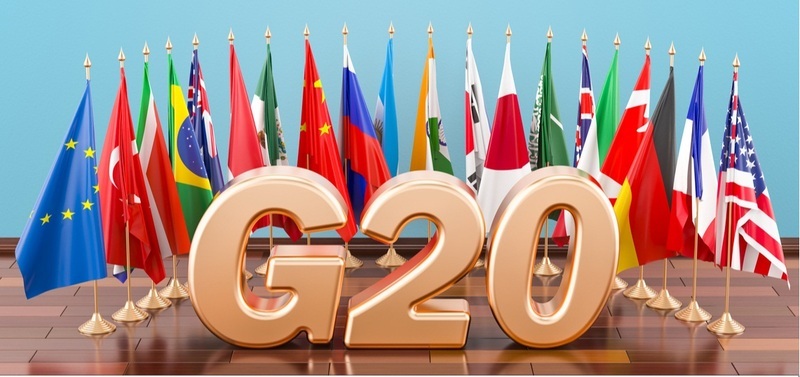By
Financial Times
-
-
G20 finance ministers have collectively endorsed carbon pricing for the first time, describing the once contentious idea as one of “a wide set of tools” to tackle climate change.
The issue of taxing carbon dioxide emissions has long divided G20 members, with the US in particular historically opposed.
“Tackling climate change and biodiversity loss and promoting environmental protection remain urgent priorities,” G20 finance ministers said on Saturday after talks on a global tax deal and other issues in Venice. The solutions could include, “if appropriate, the use of carbon pricing mechanisms and incentives”, the group said, expressing support for a carbon price in a communique for the first time.
Speaking at the Venice International Conference on Climate on Sunday, the day after the G20 talks, Christine Lagarde, president of the European Central Bank, also underscored the need for carbon pricing clarity, emphasising the importance of an “effective carbon price that reflects the true cost of carbon.”
A carbon price is a necessary precursor to the establishment of a carbon border tax, which would serve as a tariff on imports from countries without carbon pricing. The growing calls for a such a tax, came as the European Union prepared to launch a series of climate policy proposals on Wednesday, including a carbon border tax adjustment mechanism.
William Nordhaus, an American economist and Nobel laureate, gave the keynote address at the conference, calling for a “climate club” of countries willing to commit to a carbon price.
“A key ingredient in reducing emissions is high carbon prices,” he said, adding that a “climate club” would have to impose a penalty tariff on countries that did not have carbon pricing in place.
Nordhaus said such an approach would help solve the problem of free riding, which has plagued existing global climate agreements, all of which are voluntary.
“It is a painful, painful realisation, but I think we need to face it: Our international climate policy, the approach we are taking, is at a dead end,” said Nordhaus referring to the annual COP climate summits.
Yellen urged multilateral development banks to align their portfolios with net zero emissions goals as soon as possible, and to work more closely with the private sector in the climate arena.
Larry Fink, chief executive of BlackRock, called for a total overhaul of financial institutions like the World Bank and the IMF.
“When it comes to unlocking fiduciary assets, pension fund assets and asset owner capital, we need to rethink the role of these institutions. We need to rethink their model,” Fink said, referring to the World Bank and the IMF.
The two institutions operated on an outdated system that was “created more than 80 years ago”, Fink added. “We need a financing system that isn’t built around bank balance sheets, but one that is built to build to attract more capital into sustainable investments.”
Opponents of a global carbon tax, particularly in the US, question whether it is politically viable and warn of the impact on lower-income households. But IMF managing director, Kristalina Georgieva, and other policymakers echoed Lagarde in saying that the cost “initial cost pales in comparison” to the long-term of delayed action.


اترك تعليقا